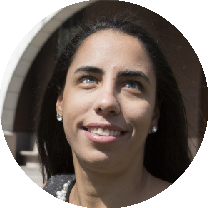Berkman Klein Center Announces 2017-2018 Community
untitled 2017-07-13
Summary:
Teaser
We are thrilled to announce the people who will join our community at the Berkman Klein Center for Internet & Society at Harvard University as fellows, faculty associates, and affiliates for the 2017-2018 academic year.

The Berkman Klein Center for Internet & Society at Harvard University today announced the incoming and returning fellows, faculty associates, affiliates, and directors who together will form the core of the Center’s networked community in the 2017-2018 academic year.
The community contributes to the Center's mission of addressing issues at the intersection of technology and society, with a focus on the design and use of digital technologies for the social good. To name just a few examples, research foci include the use of algorithms in criminal justice; the way digital, political, and institutional forces influence popular concepts of race and gender; how digital technologies can be better deployed to confront public health emergencies; and how trauma and grief are expressed on social media in the context of urban violent crime. Members of the Center’s community pursue a wide range of research methods, networking efforts, and educational activities, as well as coding, prototyping, and building.
“This exceptional group reflects our broad reach and core focus on exploring important Internet issues in a global, intersectional context,” says the Center’s Executive Director and Professor of Practice Urs Gasser. “To bring such talented, inquisitive, and creative minds together in the pursuit of dialogue across disciplines, regions, and backgrounds, and to see their collaborations converted into new understandings, research, and tools in the service of the public interest is a true privilege.”
The coming academic year will include increased joint efforts with MIT to explore the ethics and governance of artificial intelligence (AI) and related technologies, an extension of core questions that have long motivated the Berkman Klein Center’s research. “We live in a world of tightly coupled and rapidly evolving autonomous systems that advise us or act without any advice at all,” says Berkman Klein Center co-founder Jonathan Zittrain, George Bemis Professor of International Law and professor of computer science at Harvard University. “Thinking through how these global systems affect us, and how they might be deployed in the spirit of the public interest while, like the Internet, largely in private hands, draws upon and calls us to new work across many people in the humanities, engineering, law, and social science -- and industry.”
The class of fellows will primarily work in Cambridge, Massachusetts, alongside Berkman Klein faculty, students, and staff, as a vibrant community of research and practice.
Honoring the networked ethos at the heart of the Center, faculty associates and affiliates from institutions the world over will actively participate as well. These relationships, as well as the countless fruitful engagements with alumni, partners, interns, and other colleagues, are fundamental to the Berkman Klein Center’s work and identity, and serve to increase the capacity of the field and generate opportunities for lasting impact.
The Berkman Klein fellowship program aims to “create a protocol, a culture, a spirit that puts the emphasis on being open, being kind, being good listeners, being engaged, being willing to learn from one another.” We are excited to start this next year together with the following people who will continue our work as a community in this light.
Joining the community in 2017-2018 as Berkman Klein fellows:
 Doaa Abu-Elyounes is an S.J.D. candidate at Harvard Law School, where she researches the effect of artificial intelligence algorithms on the criminal justice system. She will focus on algorithmic accountability and governance of AI in criminal justice. website
Doaa Abu-Elyounes is an S.J.D. candidate at Harvard Law School, where she researches the effect of artificial intelligence algorithms on the criminal justice system. She will focus on algorithmic accountability and governance of AI in criminal justice. website

Pritha Chatterjee is a public health journalist and a recent graduate of the Masters in Public Health from the Harvard T.H. Chan School of Public Health. She will work at the Dana-Farber Cancer Institute on health communication as a route to trigger behavioral change in public health policy. website
Link:
https://cyber.harvard.edu/newsroom/2017_2018_communityFrom feeds:
Data & Society » Pinboard (datasociety)CLS / ROC » Berkman Klein Center